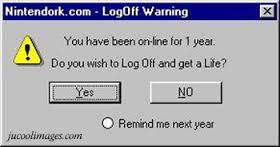Like buses – you wait for ages then two come at once. I’m MOOCing again, still with Oxford Brookes and this time with the Teaching Online Open Course #tooc14. It’s been a busy week but what a great start for the tutors and TAs. 77 individual posts in the new arrivals lounge with more likely to be browsing around seeing what a MOOC looks like and wondering about joining in. It will be interesting to see how many make it through to the end but with MOOC I’m not sure completion is the name of the game. Participation is what counts. Getting theMOOC experience, dipping in, dipping out, a taster for – or reminder of – what online learning is about.
TOOC14’s first subject is induction. Something close to my work-life heart. It’s been nearly ten years since the idea of pre-arrival support for new students via the University of Lincoln’s VLE was first suggested. Today, Getting Started is a whole institution initiative led by teaching and learning, the student engagement office and made technically possible through the enthusiasm and expertise of Matt Darch in ICT. So it’s with great personal interest I’ve been following discussions and taking part in the best ice breaker activity I’ve ever seen.
But what a challenge to the digitally uninitiated this ice breaker is. First of all you need a google account. We’re not yet at the point where google registration is ubiquitous like a national insurance number. If google has its way, the day is not far off. There’s something spooky about collaborative working on google docs where everyone can see what you’re doing. Like digital text stalking. A taste of the mighty google’s omnipotent eye. Every digital step you take, Big G is watching you. Digital footprints are permanent. Online has no boundaries, no secrets, nowhere to hide. This is digression into a my digital danger sessions – or less digression and part of the social impact of the internet. This covers OER and MOOC as much as digital identity and the ways we present ourselves online. The start of any online course is a test of digital competence and TOOC14 is no exception. It highlights how virtual participation requires digital capability. I’ve learned to be brave in online environments but it’s taken time and practice and I mean brave rather than confident. The screen which protects me also creates a virtual mirror image, one which doesn’t go away. A digital slip is a lifetime online and for many this awareness remains a barrier to be overcome.
Of all the comments I’ve read this week, the one which has stayed with me is nothing to do with induction or MOOCing – at least, not directly. It was from tutor Greg Benfield who wrote: ‘Our general line on this is that we tutors and TAs try to have a life. So participants in our courses should not expect us to be around on weekends. One of us will check on things from time to time but we won’t actively intervene on weekends except in some kind of emergency.’
Wow, an off-line weekend. No catching up with email or the tasks you meant to do last week but haven’t found time for. No – dare I say – research activity, or paper writing or transcribing interviews.
A life.
Do I still have one which is not in some way or other work related? If I take anything from this MOOC it should be this reminder – weekends are not workends – so tomorrow I go to the beach with my camera to reflect on sea, sky and fossils. Sounds like a plan!



